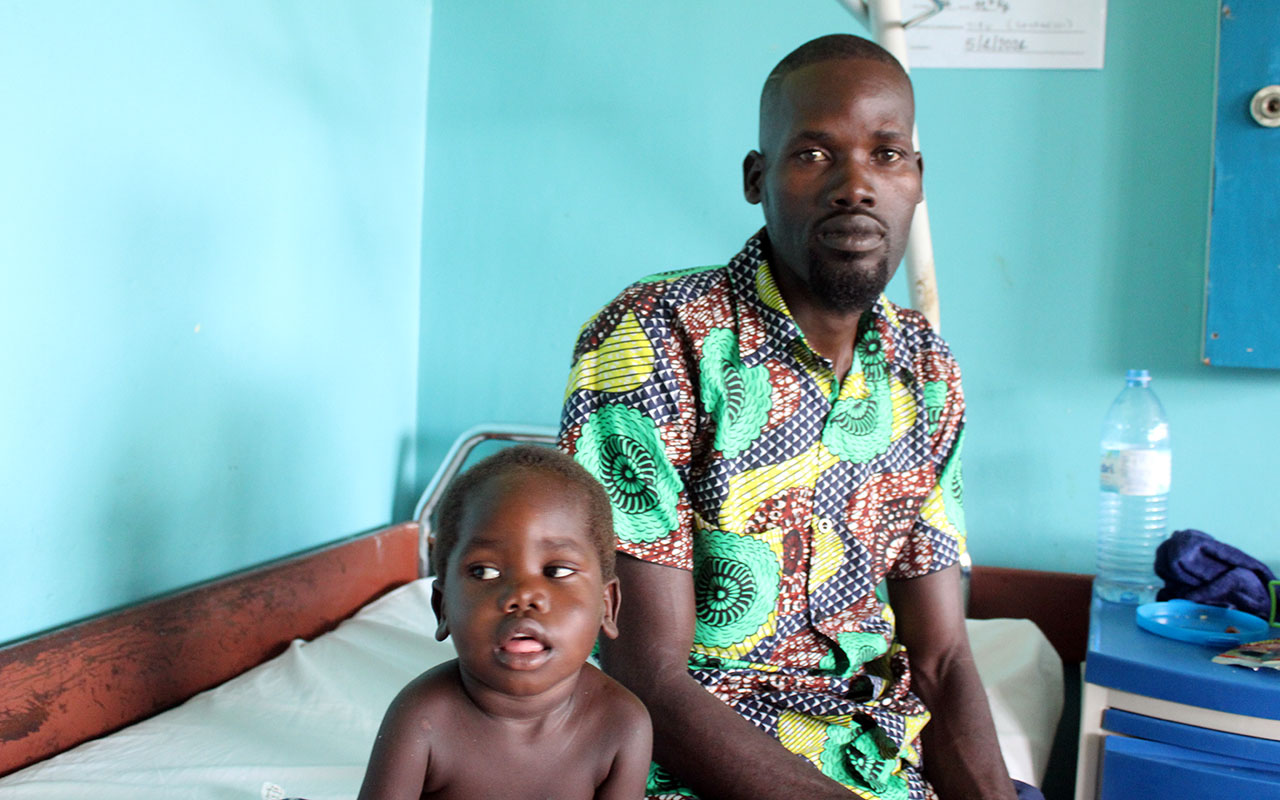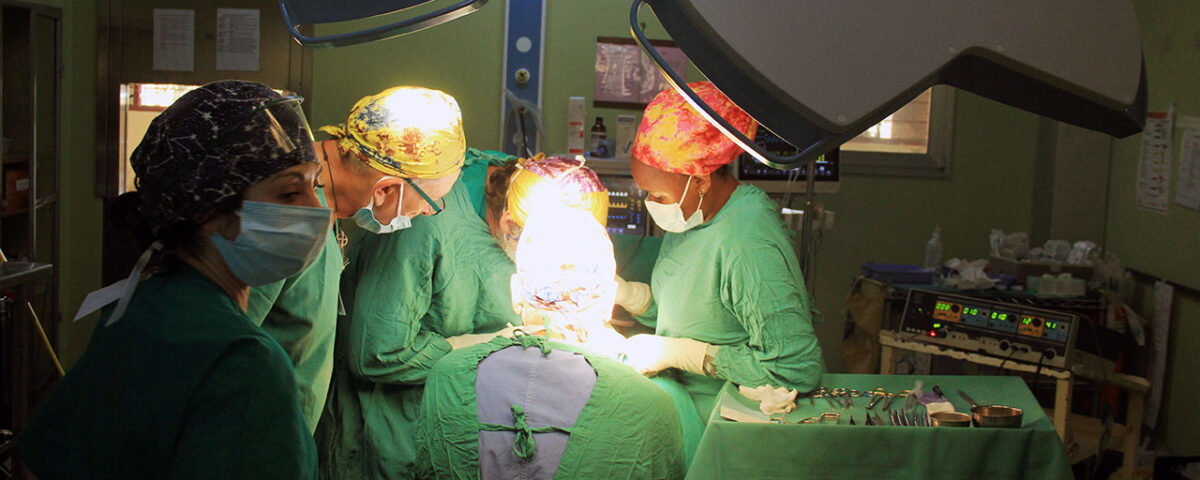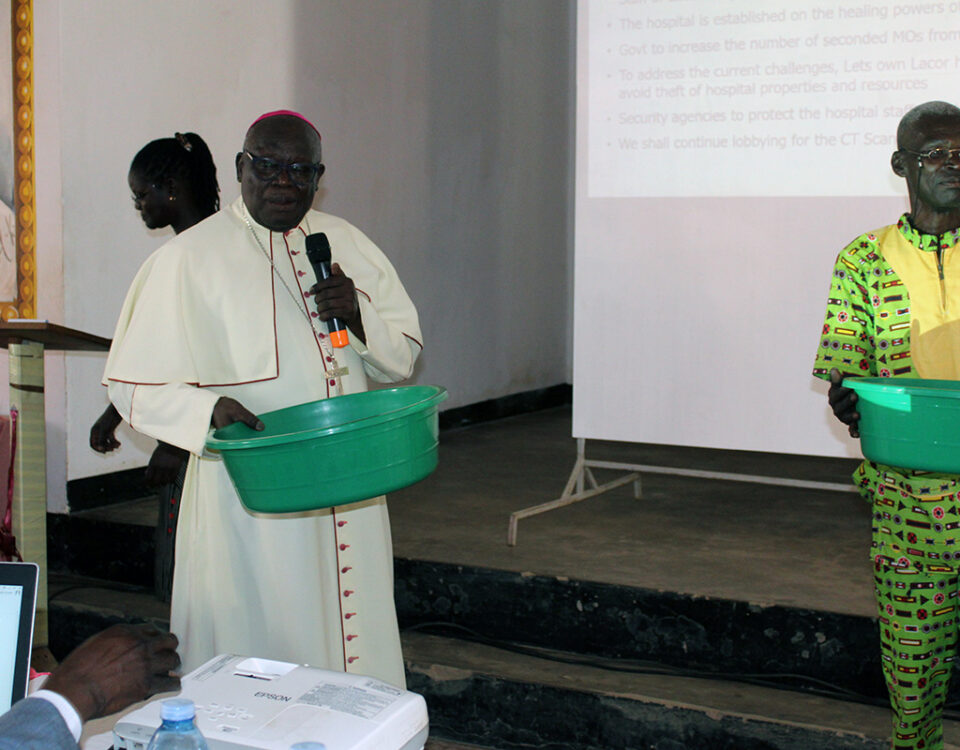This year’s pediatric surgical camp by Surgery for Children (SFC) focusing on children born with congenital malformations couldn’t come earlier enough for Rubangangeyo Emilia and his family.
Born to Ojok Justine and Lakot Jackeline who are residents of Oguru village, Unyama sub-county in Gulu, the two-year-old had been waiting for weeks following the announcement that SFC would be arriving in April.
Rubanga-ngeyo was born with a bent genital and an abnormal opening of the foreskin. It was diagnosed as Distal Hypospadias, a condition where the opening of the urethra is located midway between the edge of the head and the middle side of the penis.
As a result, little Emilia always peed on himself every now and then.
According to Dr. David Nyeko, a general surgeon at Lacor Hospital, said Distal Hypospadias is a condition where the normal opening of the urethra is not on the very tip of the penis. ‘’It is usually either below, mid-way, or at the base of the penis. So it causes urine to sprinkle like a watering can,’’ he said.
‘’It is very challenging having a child like Rubanga-ngeyo because the fear of tomorrow definitely creeps in along the stages of his growth if these kinds of surgeries are not done,’’ the father explained. ‘’How would he help himself while at school? How would he get a life partner? Imagine the teasing and mockery from the other children.’’
Emilia’s father revealed to us that because of the peculiar nature of the malformation of the genitals, they were subjects of ridicule and negative attributes in the community of Oguru. Coming from a family that has reverence for God, they had to leave everything to Him. The name they gave their son means God knows (Rubanga-ngeyo).
And just when they thought all hopes were lost, a silver lining came through the dark clouds when a student of St. Mary’s Hospital Lacor Health Training Institute who also happened to be a relative came bearing the news of the surgical camp.
He advised the parents to visit Lacor Hospital without delay and on March 12, 2024, they were registered before the arrival of the team from SFC. They were advised to come back and be in the hospital by April 3 for screening.
It is for children such as Rubanga-ngeyo that SFC first came to Uganda in 2006 and continued doing so every year for the past 18 years. So when the surgeons finally arrived, Rubanga-ngeyo was among the many to be screened on April 4.
Because of the far distance, Rubanga-ngeyo and his parents had to come three days before the screening date. ‘’We knew a huge number of people would be coming for the same purpose, it is not like home but all the wait and hassles are worth every moment of it,’’ said Mr. Ojok.

Rubangangeyo Emilia and his father after the surgery
The 5th of April was the day Emilia was operated on and the doctors reassured them that their child was finally fine. Emilia’s father confessed to having mixed feelings of doubt, worry, and anxiety, but later on, after understanding the new reality, the smile on his face told it all.
‘’My family owes it all to the SFC team, Lacor, and God who made it all possible without paying a single coin,’’ he said
He prayed for the good health of the child, he prayed for blessings and protection for the team from Surgery for Children and St. Mary’s Hospital Lacor. Little Emilia is stable and happy and awaits discharge.
The exact causes of hypospadias in most infants are largely unknown, but Dr. Nyeko says that in most cases, hypospadias is thought to be caused by a combination of genes and other factors, such as things the mother comes in contact with in her environment, or what the mother eats or drinks, or certain medications she uses during pregnancy.
Fortunately, Dr. Nyeko says this anomaly that happens while the baby is still in the womb can be repaired when the child is brought early to the hospital after birth.
‘’We plan extensively for the surgery. We tell the mothers what exactly we are going to do; how we will do it and also the likely outcome, and in the event of any complication we also tell them what we will do.’’ He said.
Dr. Nyeko advised expectant mothers to do regular antenatal checkups where sonography or obstetric ultrasound scans are done to detect if there are any congenital anomalies.
The camp, which started on April 4, will run until April 21. 68 of the 138 children lined up for surgery have so far been operated on with different anomalies, mostly hypospadias which comes second after undescended testis or cryptorchidism among the cases. The majority of the children being worked on are boys.
Other conditions being treated include anorectal malformation, ectopia vesicae, posterior urethral valves/urinary obstructions in children as well as ambiguous genitalia.


